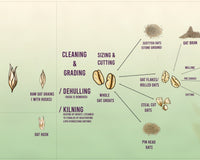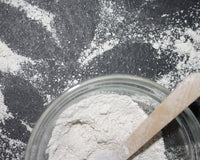A healthy diet is important at any age. As you age, your diet can become even more important as maturing bodies tend to put on a little weight. Dieting to lose weight is a little more complex for older adults, and special attention should be given to make sure your eating plan is adequate and healthy.
Talk to Your Doctor
Anyone should get medical advice when beginning a diet to shed pounds, but older adults, in particular, need to visit their physicians. In addition to some routine tests, a doctor can put the elderly person in touch with a nutritionist who can further guide the dieting process. A dietician can help to ensure that older clients are reaching daily minimum nutrition needs such as protein, vitamins, and calories. A good nutritionist can also help you avoid the common dangers of restricted diets. It is recommended that your meal plates look like rainbows with a variety of colourful fruits, vegetables, protein sources, and starches. While calorie needs may decrease as you age, the daily requirement for nutrients such as protein increases. The goal should be dropping pounds while hanging on to your vitality and health.
Know When to Stop
Working closely with a doctor and a dietician can help an older patient see when he or she might be carrying a weight-loss diet too far. If you notice any of the signs of malnutrition, you should temporarily stop. While the goal may be to drop a few pounds or to reduce your sodium and cholesterol intake, elderly adults need to be sure that their diet plans are not overly restrictive. If any signs of memory problems, sudden fatigue, or muscle weakness appear, it could be a sign of malnutrition. It is important to visit a doctor to have such issues checked out. While medication can cause such problems, if the diet is determined to be the cause, a new plan might have to be implemented to restore healthy levels. Whenever you, as an older adult, have concerns around changes to your health, try not to hesitate to call your physician to have those concerns addressed. You are your best advocate.
Moderate Exercise and Diet Are a Good Combination
While a healthy diet is recommended to maintain optimum vitality at all life stages, this is even more important as you age. However, you should not underestimate the power of exercise to enhance the benefits of healthy eating. Exercise can also help elderly adults keep depression and anxiety at bay. Even if you have limited physical ability, exercise is not off-limits. There are many exercise programs designed specifically for older people who are in wheelchairs or who have limited mobility. Cardiovascular movement, weight training, and flexibility routines can all be enjoyed from a seated position.
Aging does not have to mean poor health, extra pounds, and a sedentary lifestyle. A healthy diet, regular exercise, and staying mentally engaged can help keep the common dangers of growing older from creeping up on you. So, eat well, play a lot, and laugh often.






